
Göran BrorBennyAndersson is a Swedish singer, musician, composer, producer, member of the Swedish music group ABBA and co-composer of the musicals Chess, Kristina från Duvemåla, and Mamma Mia! For the 2008 film version of Mamma Mia! and its 2018 sequel, Mamma Mia! Here We Go Again, he worked also as an executive producer. Since 2001, he has been active with his own band Benny Anderssons orkester.

Ingrid Bergman was a Swedish actress who starred in a variety of European and American films, television movies, and plays. With a career spanning five decades, she is often regarded as one of the most influential screen figures in cinematic history. She won numerous accolades, including three Academy Awards, two Primetime Emmy Awards, a Tony Award, four Golden Globe Awards, and a BAFTA Award. She is one of only three actresses to have received three Academy Awards in acting categories.

Richard Georg Strauss was a German composer, conductor, pianist, and violinist. Considered a leading composer of the late Romantic and early modern eras, he has been described as a successor of Richard Wagner and Franz Liszt. Along with Gustav Mahler, he represents the late flowering of German Romanticism, in which pioneering subtleties of orchestration are combined with an advanced harmonic style.

Charles Boyer was a French-American actor who appeared in more than 80 films between 1920 and 1976. After receiving an education in drama, Boyer started on the stage, but he found his success in American films during the 1930s. His memorable performances were among the era's most highly praised, in romantic dramas such as The Garden of Allah (1936), Algiers (1938), and Love Affair (1939), as well as the mystery-thriller Gaslight (1944). He received four Oscar nominations for Best Actor. He also appeared as himself on the CBS sitcom I Love Lucy.
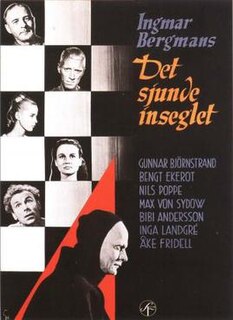
The Seventh Seal is a 1957 Swedish historical fantasy film written and directed by Ingmar Bergman. Set in Sweden during the Black Death, it tells of the journey of a medieval knight and a game of chess he plays with the personification of Death, who has come to take his life. Bergman developed the film from his own play Wood Painting. The title refers to a passage from the Book of Revelation, used both at the very start of the film, and again towards the end, beginning with the words "And when the Lamb had opened the seventh seal, there was silence in heaven about the space of half an hour". Here, the motif of silence refers to the "silence of God", which is a major theme of the film.

Erich Wolfgang Korngold was an Austrian-born American composer and conductor. A child prodigy, he became one of the most important and influential composers in Hollywood history. He was a noted pianist and composer of classical music, along with music for Hollywood films, and the first composer of international stature to write Hollywood scores.

Salome, Op. 54, is an opera in one act by Richard Strauss. The libretto is Hedwig Lachmann's German translation of the 1891 French play Salomé by Oscar Wilde, edited by the composer. Strauss dedicated the opera to his friend Sir Edgar Speyer.
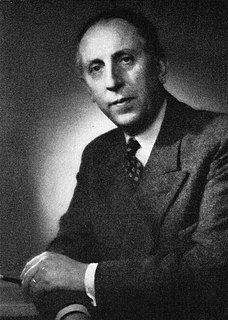
Hilding Constantin Rosenberg was a Swedish composer and conductor. He is commonly regarded as the first Swedish modernist composer, and one of the most influential figures in 20th-century classical music in Sweden.
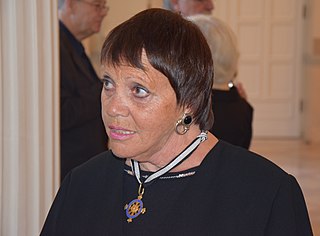
Brigitte Fassbaender, is a German mezzo-soprano opera singer and a stage director. From 1999 to 2012 she was intendant of the Tyrolean State Theatre in Innsbruck, Austria. She holds the title Kammersängerin from the Bavarian State Opera in Munich and the Vienna Staatsoper.
Cinderella is a classic fairy tale.

Intermezzo is a 1939 American romantic film remake of a 1936 Swedish film of the same title. It stars Leslie Howard as a married virtuoso violinist who falls in love with his accompanist, played by Ingrid Bergman in her Hollywood debut. The film was directed by Gregory Ratoff and produced by David O. Selznick. It features multiple orchestrations of Heinz Provost's title piece, which won a contest associated with the original film's production. The screenplay by George O'Neil was based on that of the original film by Gösta Stevens and Gustaf Molander. It was produced by Selznick International Pictures.
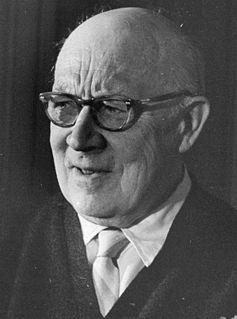
Gustaf Harald August Molander was a Swedish actor and film director. His parents were director Harald Molander, Sr. (1858–1900) and singer and actress Lydia Molander, née Wessler, and his brother was the director Olof Molander (1892–1966). He was the father of director and producer Harald Molander from his first marriage to actress Karin Molander and father to actor Jan Molander from his second marriage to Elsa Fahlberg (1892–1977).
Louis Gruenberg was a Russian-born American pianist and prolific composer, especially of operas. An early champion of Schoenberg and other contemporary composers, he was also a highly respected Oscar-nominated film composer in Hollywood in the 1940s.
Macbeth is a play by William Shakespeare.

Gregory Ratoff was a Russian-born American film director, actor and producer. As an actor, he was best known for his role as producer "Max Fabian" in All About Eve (1950).
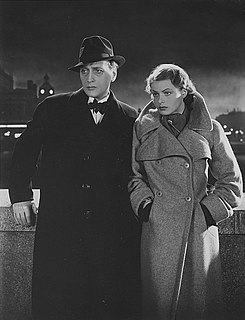
Ingrid Bergman was a multilingual, Academy Award-winning actress born in Stockholm, conversant in Swedish, German, English, Italian and French. She had been preparing for an acting career all her life. After her mother Frieda died when she was three years old, she was raised by her father Justus Samuel Bergman, a professional photographer who encouraged her to pose and act in front of the camera. As a young woman, she was shy, taller than the average women of her generation, and somewhat overweight. Acting allowed her to transcend these constraints, enabling her to transform herself into a character. She first appeared as an uncredited extra in the film Landskamp (1932) and was accepted into the Royal Dramatic Theatre of Stockholm as a scholarship student in 1933.
Pinocchio is the boy-puppet from the 1883 novel The Adventures of Pinocchio.
Burlesque is a classic musical or theatrical entertainment of parodic humour.
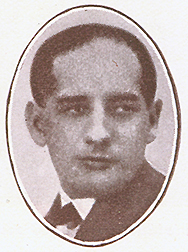
Gösta Stevens was a Swedish screenwriter and film director.













